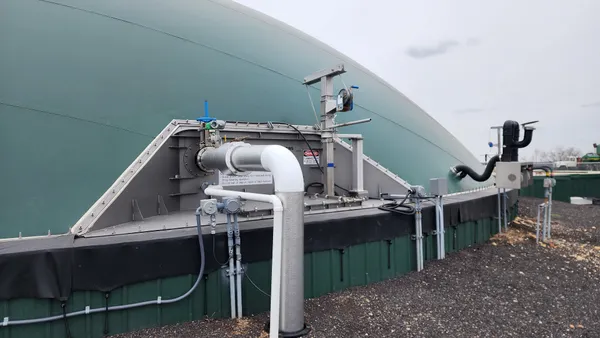Dive Brief:
- Harvest Power is closing a large composting facility in the Vancouver, British Columbia suburb of Richmond, according to the Vancouver Sun and others. The company plans to operate the facility until sometime next year.
- The Massachusetts-based company — which has a Canadian headquarters in Richmond — released a statement reading, in part: "Harvest has made a business decision not to proceed with the [covered aerated static pile] replacement and will begin to take steps to wind down its compost operations in Richmond, British Columbia. Regulatory uncertainties and other variables beyond our control have driven Harvest to make this decision..."
- The company said it would have to invest several million dollars into the facility to meet regional air quality permit requirements, namely capping open organics piles. Its current permit expires in 2020.
Dive Insight:
Although Harvest Power indicates the facility shutdown is a business decision, and not related to odor complaints, the two appear to go hand-in-hand. While part of the multi-million dollar upgrade for license renewal would have yielded environmental and air quality benefits, it also would alleviate some odors.
The shutdown could create a bit of a capacity conundrum for the region, considering both the city of Vancouver and Metro Vancouver banned food scraps from going to waste in January 2015. However, representatives from regional governing body Metro Vancouver maintain that the remaining processing facilities have enough capacity to pick up the slack once Harvest Power ceases operations. Interestingly, a Harvest Power representative told the Vancouver Sun that it processes more than 100,000 metric tons of organics per year, but that number is about half of what the company was processing a couple years ago.
Metro Vancouver has kept a tally of complaints specifically related to Harvest Power's Richmond facility, currently averaging about 50 per month. Ongoing tensions around this issue have led the company to suspend operation of an on-site digestion facility in the past and prompted Richmond itself to threaten canceling a service agreement. It's unclear if each logged complaint is from a unique individual or if the same individuals repeatedly file complaints. That phenomenon of a small group of residents repeatedly filing complaints reportedly occurred in Colorado with Heartland Biogas.
Still, positive community relations and making residents feel like their concerns are heard, while sometimes challenging and potentially costly, makes for a better roadmap to organics company success and expansion. Community engagement to ease tensions between organics companies and the public can occur in a variety of ways, some being educational campaigns, attending public meetings and communicating with local officials. As new organics processing facilities slowly begin to open up around the U.S. and Canada, this will only become more important in the years ahead.











